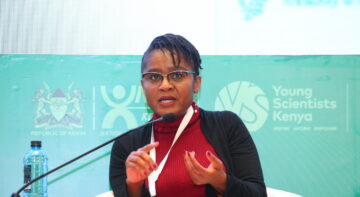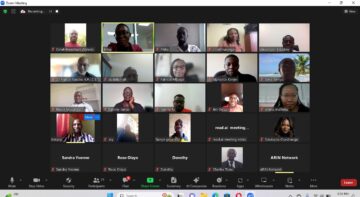Blogs

Kenya’s Vision 2030 targets an average annual economic growth of 10 per cent and to move the country to middle-income status. However, at 5.3 per cent, the current trend of economic growth is way below this target.
Moreover, this growth is not inclusive, as income inequalities continue to grow. One of the challenges inhibiting economic growth is the high dependency burden due to a youthful population. According to the 2009 census, 43 per cent of the population is below 15 years, requiring heavy investment in healthcare and education.
With the right policy approach, however, a youthful population presents an opportunity for harnessing the demographic dividend, which refers to the rapid economic growth that results from a higher number of working age adults relative to children if they are economically engaged.
According to the Ministry of Devolution, the government realises that harnessing this demographic dividend will entail integrated investment in key economic sectors with high job multiplier effects such as tourism, agriculture, and manufacturing. This must be accompanied by development of human capital through access to quality healthcare, education, and skills. One opportunity that speaks to the demographic dividend agenda of inclusive economic growth is the outcome of the several international meetings and conferences that have been held in the country in the recent past.
KENYA HOSTED
In 2015, Kenya hosted the Global Entrepreneurship Summit and the World Trade Organisation’s 10th Ministerial Conference. This year it was the United Nations Conference on Trade and Development in July, the sixth Tokyo Investment Conference on Africa’s Development in August, and the African Green Revolution Forum in September. In December, Kenya will host the Global Partnership for Effective Development Cooperation meeting.
What is the impact of these meetings to the economy? The obvious ones are increase in revenue collected by hotels and a boost to tourism. This is good news for the sector, a good foreign exchange earner whose fortunes plummeted after several terrorist attacks. Hosting high-level conferences in Nairobi profiles Kenya’s image internationally and showcases it as a safe destination.
Another impact is the creation of jobs through entrepreneurship promotion. These meetings have highlighted opportunities that Kenya offers for investment and job creation. Inviting local and international investors to have first-hand experience with the Kenyan economic landscape has cast Kenya as a safe haven for investment. For a start, local entrepreneurs get an opportunity to connect with established global investors looking to partner with them.
ANNOUNCED PLANS
In addition, some international institutions have announced plans to set up their office in Kenya. For instance, Oxfam, a British NGO, has announced that it will move its international headquarters from the UK to Nairobi. Empretec, a pioneering UNCTAD programme that promotes entrepreneurship for disadvantaged people, has launched a Kenyan chapter.
During these meetings, Kenya signed several trade and business agreements to reduce or eliminate obstacles to trade such as tariff and non-tariff barriers. This is expected to increase exports and export-oriented manufacturing. Increasing exports stimulates growth through increased foreign exchange and purchasing capacity with resultant economic growth and creation of employment. Rapid export growth was one of the drivers of the rapid and sustained growth among the Asian Tigers.
Manufacturing accounts for only 11 per cent of the Kenyan GDP. Leveraging on the new trade agreements and maximising the African Growth and Opportunity Act tariffs can bring in much-needed revenues for economic growth. For the international meetings to have an impact on economic growth and jobs, it will require follow-up from all stakeholders.
Eunice Mueni (eunice.mueni@afidep.org) and Ferdinand Okwaro (ferdinand.okwaro@afidep.org) are Knowledge Translation Officers at the African Institute for Development Policy.
Related Posts





